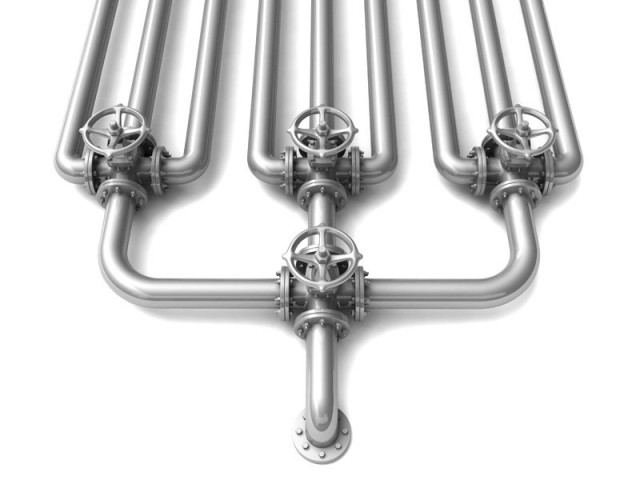Gas supply to SSGC to be increased next year
Company will get 100 mmcfd from new fields, LPG air-mix plant.

3.2 bcfd of gas is supplied to Sui
gas companies out of total
production of 4 bcfd. CREATIVE COMMONS
An official told APP that 50 to 60 mmcfd was likely to be supplied from new gas fields by early next year and another 50 mmcfd is expected in the shape of LPG air-mix from an LPG plant being constructed at Port Qasim.
Apart from these, a significant quantity of 110 mmcfd can be saved by adopting conservation techniques and installing proper gadgets.
Quoting SSGC’s managing director, the official cautioned that with the improvement in gas supply, demand too would grow at the same pace and to cope with this grim scenario, all gas consumers would have to make sacrifices whether they are household consumers, industrial and commercial users or compressed natural gas (CNG) stations.

In an attempt to improve its financial position, SSGC has sought permission from the Oil and Gas Regulatory Authority (Ogra) – the oil and gas sector’s regulator – to allow the company to recover losses caused by gas theft by unregistered consumers.
The official, however, pointed out that recovery of bills from the industrial sector was excellent and said besides undertaking a gas conservation campaign, SSGC had launched an advisory service for the industries. “Any industrialist can take this service free of charge,” he said.
There are calls that the industry should be given priority among all gas consumers as it provides employment to millions of people.
Pakistan produces 4 billion cubic feet per day (bcfd) of natural gas, of which 3.2 bcfd is pumped into SSGC’s and Sui Northern Gas Pipelines’ systems and the rest is supplied to power and fertiliser companies.
According to the official, the gap between supply and demand is widening, with rising unaccounted-for-gas (UFG) levels, caused by leakages, measurement and billing errors and theft, making SSGC’s bottom-line vulnerable.
Published in The Express Tribune, February 20th, 2013.
Like Business on Facebook to stay informed and join in the conversation.


















COMMENTS
Comments are moderated and generally will be posted if they are on-topic and not abusive.
For more information, please see our Comments FAQ